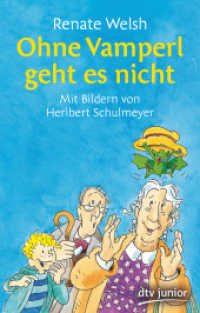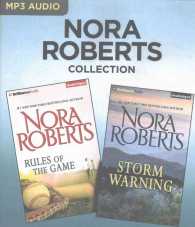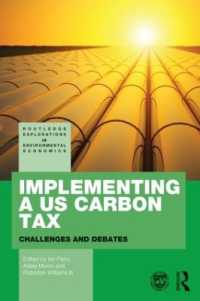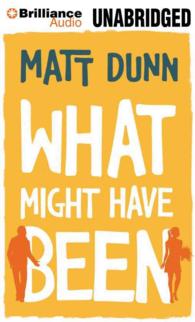- ホーム
- > 洋書
- > 英文書
- > Religion / Ethics
Full Description
On the north end of London lies an old nonconformist burial ground named Bunhill Fields. Bunhill became the final resting place for some of the most honored names of English Protestantism. Burial outside the city walls symbolized that those interred at Bunhill lived and died outside the English body politic. Bunhill, its location declares, is the proper home for undomesticated dissenters.
Among more than 120,000 graves, three monuments stand in the central courtyard: one for John Bunyan (1628-1688), a second for Daniel Defoe (1660?-1731), and a third for William Blake (1757-1827). Undomesticated Dissent asks, ""why these three monuments?"" The answer, as Curtis Freeman leads readers to discover, is an idea as vital and transformative for public life today as it was unsettling and revolutionary then.
To tell the untold tale of the Bunhill graves, Freeman focuses on the three classic texts by Bunyan, Defoe, and Blake - The Pilgrim's Progress, Robinson Crusoe, and Jerusalem - as testaments of dissent. Their enduring literary power, as Freeman shows, derives from their original political and religious contexts. But Freeman also traces the abiding prophetic influence of these texts, revealing the confluence of great literature and principled religious nonconformity in the checkered story of democratic political arrangements.
Undomesticated Dissent provides a sweeping intellectual history of the public virtue of religiously motivated dissent from the seventeenth century to the present, by carefully comparing, contrasting, and then weighing the various types of dissent - evangelical and spiritual dissent (Bunyan), economic and social dissent (Defoe), radical and apocalyptic dissent (Blake).
Freeman offers dissenting imagination as a generative source for democracy, as well as a force for resistance to the coercive powers of domestication. By placing Bunyan, Defoe, and Blake within an extended argument about the nature and ends of democracy, Undomesticated Dissent reveals how these three men transmitted their democratic ideas across the globe, hidden within the text of their stories.
Freeman concludes that dissent, so crucial to the establishing of democracy, remains equally essential for its flourishing. Buried deep in their full narrative of religion and resistance, the three monuments at Bunhill together declare that dissent is not disloyalty, and that democracy depends on dissent.
Contents
1. Domesticating Dissent
2. Slumbering Dissent: John Bunyan
3. Prosperous Dissent: Daniel Defoe
4. Apocalyptic Dissent: William Blake
5. Postapocalyptic Dissent








